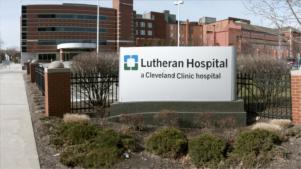Faith-Based Health Insurance (Healthcare Sharing Plans) In Cleveland, Ohio
American consumers are choosing faith based health plans over traditional insurance in ever increasing numbers. Cleveland, OH is no exception. In fact, Cleveland has seen as much growth in the volume of healthcare sharing plans as
any state in the U.S.
So, what is faith based insurance?
Faith-based health insurance refers to a method consumers from all walks of life are utilizing to handle the risk of unexpected medical bills. And
in actuality, it's not insurance at all - at least not in the legal sense of the word. Faith-based health plans, (also known as healthcare sharing plans, alternative health plans, or healthcare sharing ministries), are actually health plans that are designed to meet the same needs
as traditional health insurance. The difference is, these plans are not governed by the ACA (Affordable Care Act) rules and regulations. This distinction makes
it possible for faith-based health plans to be structured in ways that are different than a traditional ACA plan.
There are several advantages (and a few disadvantages) that are inherent within this distinction. This article will address both.
Want to see faith-based / healthcare sharing plans and rates now? Click here.
Health care sharing ministries have grown exponentially beyond what anyone could have possibly imagined, when such ministries were exempted from the Affordable Care Act health plan requirements. At the time, the exemption was a way to sooth objections from conservative leaning congressmen who had reservations on the passage of the ACA. This exempted niche, is now a fast growing segment of the health plan industry. From all appearances, this trend will continue well into the foreseeable future. What was once a fringe idea, limited to devout Evangelicals and rural churches has found acceptance with a wide swath of the American populous.
How do faith-based plans work?
To put it simply, healthcare sharing is about like-minded people voluntarily coming together to share the burden of medical expenses. Healthcare sharing plans are typically faith-based, meaning the core concepts are based upon religious beliefs. However, in most cases, consumers do not need to be affiliated with any religious group, or be religious at all, in order to purchase a faith-based health plan.
Usually, funds to pay medical bills are dispersed within the same community that the members reside. in other words, membership dues collected from plan members living in the Cleveland, OH region will be used to pay for medical costs that arise within the very same Cleveland, OH region.
Faith-based plans (also known as healthcare sharing plans) are designed to accomplish the same fundamental goals as traditional health insurance:
- Help people maintain good health by offsetting the costs of health care access.
- Assist people with the cost of medical bills.
- Protect people from catastrophic financial loss due to major medical expenses.
The mechanics.
In Cleveland, the workings of faith-based health plans offered by various entities are quite similar. Each month all the members pay a set contribution or "share" amount. This contribution is based on the health plan style they have purchased. Other factors that may contribute to what the contribution will be are age, gender, and health history. Contributions are placed into a pool and managed by the healthcare sharing company. The funds are shared with members who have immediate medical bills, according to their chosen plan and company guidelines.
courtesy of Parents.com
 |
| Cleveland Clinic - Lutheran Hospital 1730 W 25th St, Cleveland, OH 44113 Cleveland, OH 44113 Telephone: (216) 696-4300 Plus Code: F7PR+WX Cleveland, Ohio |
Advantages of Faith-Based Health Care Sharing Plans.
Because Faith based health plans do not fall under Affordable Care Act regulations, there is enormous flexibility in plan structure. This is one of the factors that contribute to a lower monthly premium, when compared to a traditional health insurance plan with similar benefits. Another contributing factor to lower premiums is the comparative lack of bureaucracy within entities that offer faith-based health plans. Insurance companies in America have had over a century to build up a virtual mountain of bureaucracy. This stifling excess is invariably passed on to the consumer, in the form of high plan premiums.
Also, the lack of bureaucracy, translates into your physician, medical facility, or hospital being paid much more quickly for services provided. Consequently, medical providers generally like healthcare sharing plans.
First and foremost, you cannot be declined ACA coverage due to a health issue. This is a major difference, as faith-based health plan companies can choose to decline coverage to any individual due to medical issues or history. Also, certain ACA plan benefits are mandated by law. Some benefits, like maternity, for example, may be very important to you. Your faith-based plan may not offer it. Faith based health plans are subject to a lifetime benefit maximum. In some cases, specific benefits are limited.
It's very important that you thoroughly understand the benefits and limitations of faith based health care coverage before you purchase a plan.
For more information on Faith-Based health plans, or other coverage options, please give us a call.
Other articles:
Explaining the Growth of HealthCare Sharing Plans.
5 Strategies For Reducing Medical Bills.
Resources
Request a Call Back
We are pleased to assist and will respond promptly.